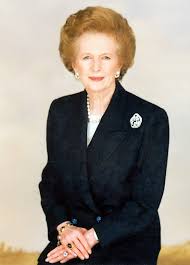The Enduring Legacy of Margaret Thatcher

Introduction
Margaret Thatcher, who served as the Prime Minister of the United Kingdom from 1979 to 1990, is a figure that continues to shape political discourse in Britain and beyond. Often referred to as the ‘Iron Lady,’ her leadership style, policies, and personal conviction made her a polarising figure, yet her impact on the UK’s political landscape is undeniable. In recent discussions about leadership and governance in contemporary politics, Thatcher’s legacy is frequently analysed for its relevance in today’s world.
Thatcher’s Rise to Power
Born on October 13, 1925, in Grantham, Lincolnshire, Margaret Thatcher trained as a chemist before studying law. She entered politics in the 1950s, becoming a Member of Parliament (MP) in 1959. Through the 1970s, she rose through Conservative party ranks. Her determination and no-nonsense approach to politics culminated in her election as the party leader in 1975, leading to her premiership in 1979 amidst economic turmoil.
Key Policies and Impact
Thatcher’s government pursued policies that reshaped the UK economy, notably through the introduction of neoliberal reforms. She championed free-market principles, privatising state-owned industries such as British Telecom and British Gas, and reducing the power of trade unions. Her policies sparked significant social and economic changes, including a rise in unemployment in the short term but also a period of substantial economic growth by the late 1980s.
Internationally, Thatcher was known for her strong support of the United States and her close relationship with President Ronald Reagan. This alliance was pivotal during the Cold War, as she took a firm stance against the Soviet Union, contributing to the eventual fall of communism in Eastern Europe. Thatcher’s foreign policy decisions, particularly during the Falklands War in 1982, bolstered her popularity at home and underscored her resolve as a leader.
Controversies and Criticism
Despite her successes, Thatcher’s policies were deeply controversial and generated significant opposition. Her tenure was marked by protests, particularly in response to her handling of social issues and the economic hardships faced by many working-class citizens. Critics argue that her policies exacerbated inequality and social division, a sentiment that remains relevant in current debates about economic policy and social welfare.
Conclusion
Margaret Thatcher passed away on April 8, 2013, but her legacy endures in British politics. Contemporary leaders still grapple with the implications of her policies, and her time in office serves as a reference point in discussions around leadership style and economic philosophy. As political narratives evolve, reflecting on Thatcher’s approach provides crucial insights into the ongoing challenges of governance in a complex and changing world.









